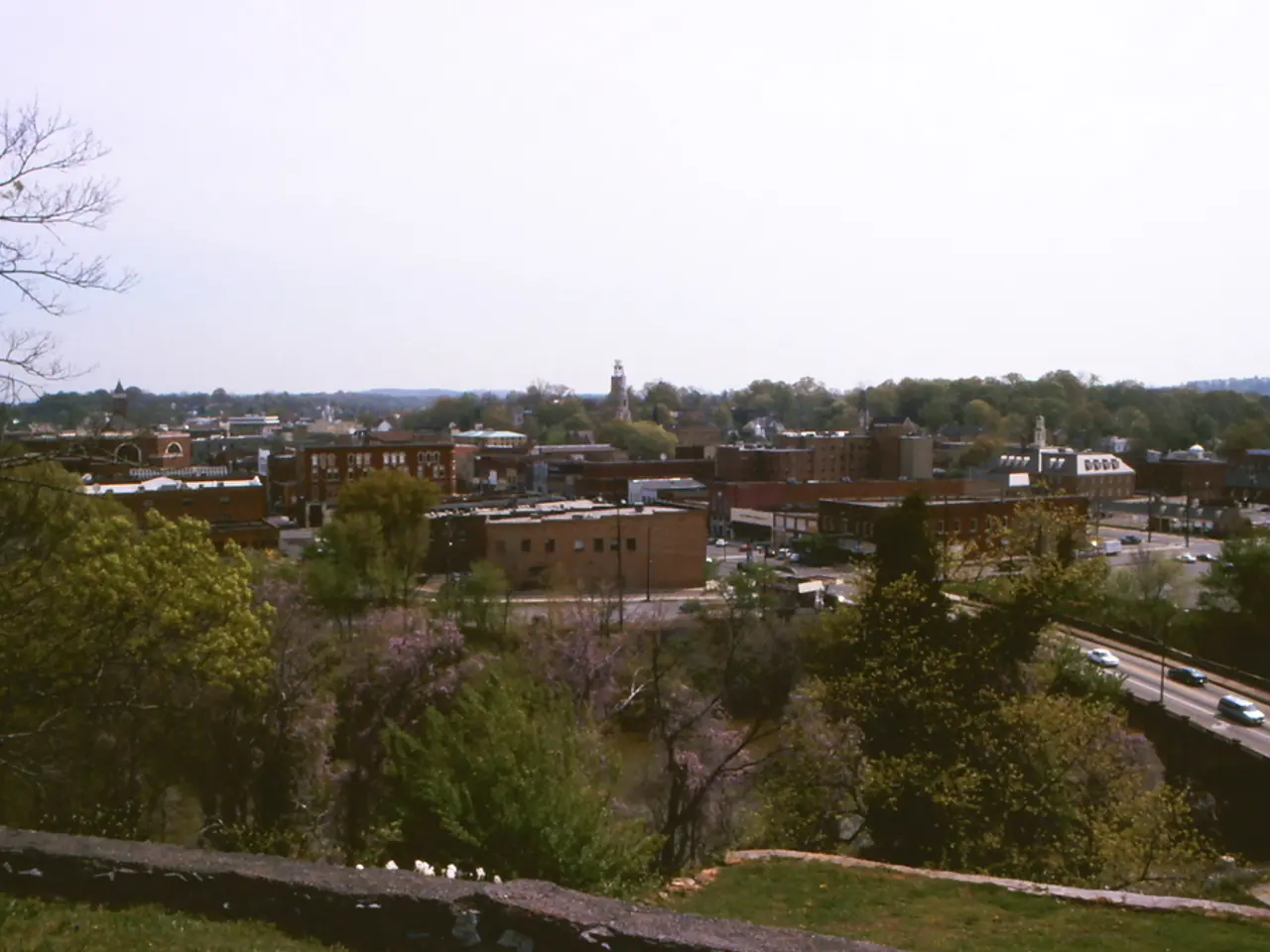Cape Town Officials Approve Invested in Hope Budget, Unveil R40 Billion Infrastructure Development Strategy
In a groundbreaking move, the Cape Town Council has embraced the City's 2025/26 budget, christened the Invested in Hope Budget, which promises a whopping R40 billion infrastructure overhaul across the next three years. This investment, an unprecedented sum in South African history, aims to revitalize critical city infrastructure, sidestepping potential crises and deterioration[1][3].
To support its residents, particularly lower-income households, the budget includes a series of relief measures. For instance, pensioners with incomes up to R10,000 per month now qualify for a 100% rebate on rates and cleaning charges, an improvement from the previous R7,500 threshold[2][4]. Furthermore, tiered discounts extend up to a R27,000 income threshold, providing relief for middle-income families as well.
Another significant aspect of the budget is a substantial safety investment aimed at deploying over 700 new police officers across every ward in the city, bolstering security city-wide. Additionally, expanded cleaning services focusing on highways and central business districts promise to elevate the cleanliness and upkeep of urban areas[3].
Mayor Geordin Hill-Lewis, in his address to the council, emphasized that the budget represents a proactive approach to creating a better, safer, and future-ready city. He underscored the importance of investing in infrastructure and safety before being forced to act due to crises[3].
However, the budget has drawn both praise and criticism. While it has been largely welcomed by lower-income and middle-class residents, critics argue that it fails to adequately address the needs of the poorest and working-class communities. They point out underfunding for social housing, township electrification, sanitation in informal settlements, and transport upgrades in marginalized areas[2][5].
In essence, the Invested in Hope Budget strikes a balance between substantial infrastructure and safety investments and targeted relief for vulnerable residents, all within a R40 billion framework aimed at ensuring long-term urban sustainability and inclusivity. Yet, it remains a topic of conversation, with ongoing debates revolving around equity and prioritization[1][2][3][4][5].
[1] https://bit.ly/44cHLyV[2] Schütz, H. (2021, June 8). Cape Town budget highlights. The Conversation Africa. Retrieved January 23, 2023, from https://theconversation.com/cape-town-budget-highlights-164301[3] City of Cape Town. (2021, May 28). Special Rates Relief measures added to 2021/22 revised budget draft. City of Cape Town. Retrieved January 23, 2023, from https://www.capetown.gov.za/news/articles/2021/may/special-rates-relief-measures-added-to-202122-revised-budget-draft[4] Nortjie, E. (2021, June 18). City of Cape Town budget seeks to balance infrastructure investment and rates relief. News24. Retrieved January 23, 2023, from https://www.news24.com/news24/SouthAfrica/News/city-of-cape-town-budget-seeks-to-balance-infrastructure-investment-and-rates-relief-20210618[5] Gqokoma, N. (2021, June 21). City of Cape Town 2021/22 budget: Poor and working class outcry against austerity. Daily Maverick. Retrieved January 23, 2023, from https://www.dailymaverick.co.za/city-of-cape-town-202122-budget-poor-and-working-class-outcry-against-austerity/
- The news about the Invested in Hope Budget, with its R40 billion infrastructure overhaul, has sparked discussions in the realm of personal finance, business, and wealth-management, as well as policy-and-legislation and politics, due to its potential impact on the city's future and the economy.
- The budget's infrastructure investments, focused on revitalizing critical city infrastructure, garnered praise, but criticism ensued regarding insufficient attention to the needs of the poorest and working-class communities, such as inadequate funding for social housing, township electrification, sanitation, and transport upgrades.
- Critics also question the balanced approach of the Invested in Hope Budget, particularly the substantial investment in safety and the relief measures for vulnerable residents, arguing that more could have been done to immediately address the needs of these communities.
- On the other hand, supporters of the budget highlight its targeted relief measures for lower-income households, such as the 100% rebate on rates and cleaning charges for pensioners with incomes up to R10,000 per month, as well as the benefits for middle-income families through tiered discounts on these charges.
- The debates revolving around the Invested in Hope Budget underline the importance of addressing both infrastructure and social issues, and the need for equitable distribution of resources within the city's policy-and-legislation framework.
- As the implementation of the Invested in Hope Budget progresses, it will be interesting to witness the transformative effects of infrastructure investments and relief measures on the city's transport, property markets, and overall quality of life, while also monitoring how the budget addresses the concerns of its poorest and working-class residents.





